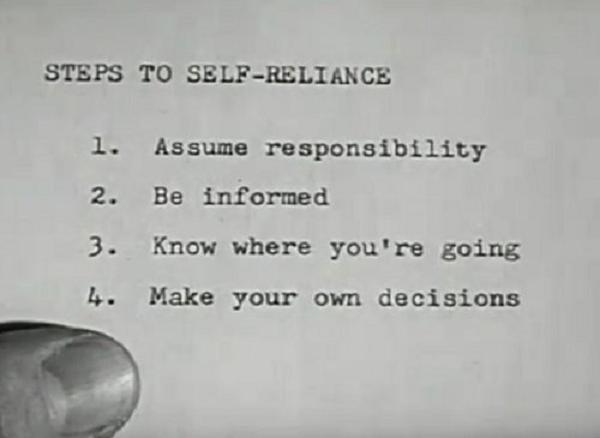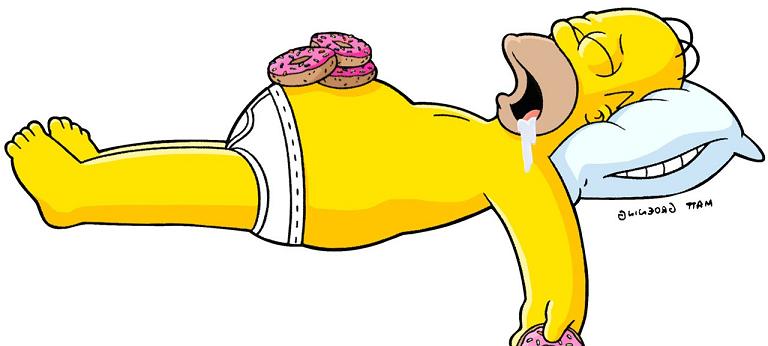Self-sufficiency refers to the state of not requiring any outside aid, support, or interaction, for survival. It is therefore a type of personal or collective autonomy.
Codependency is a tendency to behave in overly passive or excessively caretaking ways that negatively impact one’s relationships and quality of life. People with codependency are more likely to attract further abuse from aggressive individuals, more likely to stay in stressful jobs or relationships, less likely to seek medical attention when needed and are also less likely to get promotions and tend to earn less money than those without codependency patterns.
Steps to Balancing Self Reliance
1. Assume Responsibility
Start taking responsibility for your life and the things in it. Start using a calendar to keep track of your appointments and important due dates. If you make a mistake, own up to it, and try to make it right yourself instead of immediately relying on other people. When a child is able, he, in gratitude to the unselfish care he received for many years from his parents, should begin to transfer his load from their shoulders to his, as soon as he possibly can.
Instead of feeling like life is simply happening to you, you’ll begin to feel like the captain of your destiny and master of your soul. As you assume responsibility for your life, you’ll notice doors open up to new and better opportunities. As the video above puts it, while it’s easy to get by by having other people do everything for you, “the trouble is, when you’re not self-reliant, you’ll never do more than just get by.”
2. Be Informed
Of course in order to take on more responsibilities, you have to know how to carry out those responsibilities. The excuse of ignorance is weak in the age of the internet, with answers to many of life’s questions just a Google search away.
This isn’t to say that you should completely avoid advice from others. There are some problems or decisions Google just can’t help with. You should definitely take advantage of the practical wisdom older people have acquired by asking for their input when making an important decision or trying to solve a problem.
So investigate yourself first; try figuring things out on your own. Experience can be the best teacher. Once you’ve reached a wall, then go seek help. Because you’ve gotten your hands dirty with your issue, so to speak, you’ll be in a better position to ask them effective questions.
In situations where the stakes are high, turn to others sooner rather than later; oftentimes it’s better to learn from the mistakes of others, rather than making them yourself.
Be very observant wherever you go. In this way, you build up a library of information that you can draw upon when making a decision or solving a problem.
3. Know Where You’re Going
A self-reliant person has goals that are personally set. Aims should not merely be those things other people think you should do. The self-reliant person is autonomous and doesn’t overly rely on others to validate a decision. A self-reliant person works with an end in mind, blueprints have been created for the future. When a problem arises, the self reliant person is informed on what an ideal resolution would be and then works to make it a reality. Plans out your weeks and ensure tasks that you’re responsible for are completed.
4. Make Your Own Decisions
Life is actually much easier and a lot less stressful when you proactively make your own decisions. With any choice or problem you may face, decide on an action plan quickly, and execute it immediately.
“In any moment of decision, the best thing you can do is the right thing, the next best thing is the wrong thing, and the worst thing you can do is nothing.” -Theodore Roosevelt
Also, while you should certainly seek advice from others to inform your decisions, don’t rely on them to make your decisions for you. It’s your life. Don’t let others live it for you.
> Developing a Self-Reliant Mentality | The Art of Manliness






I don’t quite understand the weed picture going along with the make your own decisions post. Just wondering if it was a stance against or for marijuana, in association to self-reliance. Other than that this was a good article, very helpful.
It is support for cannabis because most parents, schools, and governments have a prepackaged and misinformed stance that can negatively influence the decision of someone who can benefit from using cannabis.